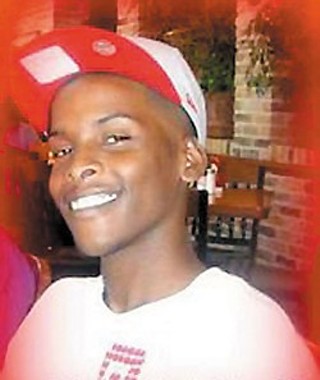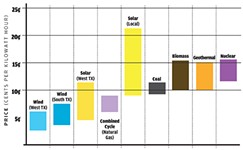Point Austin: An Institutional Failure
The Carter verdict does not exonerate the APD
By Michael King, Fri., June 14, 2013

I wish I could say that I was surprised by the jury verdict in the Byron Carter federal civil rights lawsuit. As Jordan Smith reports in this issue ("Carter Trial: Jury Clears APD Officer"), the jury exonerated Austin Police Department Officer Nathan Wagner of wrongdoing ("excessive force") in the shooting that killed Carter. As I wrote a few weeks ago ("Point Austin," May 24), "Juries are notoriously reluctant to find fault with police officers," and this one proved no exception. The jurors were effectively required to put themselves in the place of the officer confronted with an abrupt and emergency situation – and then to decide if it was "reasonable" for him to react in the way he did.
By that standard, it's extremely difficult for a jury to do otherwise than to rule in the officer's favor. Moreover, the jury was not allowed to see the report of the Citizen Review Panel that not only found that Wagner had used excessive force, but that he should be terminated. Judge Lee Yeakel ruled that the CRP had not conducted an independent investigation of the shooting and therefore its report did not meet the federal standard for evidence. Yet that additional piece of information might at least have led the jury to consider whether Wagner and his partner had put themselves in harm's way by surreptitiously (as they acknowledged) pursuing two young men who were simply walking through a neighborhood that the police were watching. As I wrote earlier, from the available information, "this looks frankly like a case of overzealous cops arbitrarily pursuing two unsuspecting young black men on a dark street – with the resulting confrontation producing instantaneous panic on both sides."
Having served on a few juries over the years, I don't like to second-guess jurors without sitting through the entire trial myself – but the default presumption seems to have been that the cops must have had reasons for their suspicions, while the young men should not have been shocked to be suddenly confronted by armed strangers.
Doing What's 'Required'
My skepticism was not reassured by the official statement issued by the APD after the verdict, which declares, "The facts of this case confirmed that Officers Wagner and Rodriguez were placed in a life-threatening situation that required the use of deadly force." While it's possible to excuse Wagner's conduct on emergency grounds – that was apparently the conclusion of the jury – on what imaginable grounds can APD defend shooting the passenger in a moving vehicle as not only an excusable but required use of force?
Did Officer Wagner's shooting of Carter preserve the life or safety of Officer Jeffrey Rodriguez, who apparently fell down but was not seriously injured? Did shooting and killing Carter even stop the car driven by his friend Leyumba Webb, who (himself wounded) instead drove away in a panic and abandoned the car several blocks away? On what possible grounds can the APD now claim that firing blindly into a moving vehicle from a few feet away, without any effective knowledge of what or who the bullets might be hitting, was a required use of force?
Having won its narrow legal victory, under a very dark cloud of potential liability and widespread public suspicion, the APD now wants to claim that its officers not only did nothing wrong, they did exactly what they are required to do. Apparently, under the terms of its current justification, it is the APD's position that a police officer's badge is also a license to shoot at will, without regard to consequences.
Changes Needed
Wagner's lawyer, Robert Icenhauer-Ramirez, can be excused for defending his client by any means at hand – specifically, by strongly implying to the jury that Carter and Webb had been committing some crime that evening, perhaps even selling drugs, although such was never in evidence, and is in any case not yet considered grounds for summary execution. Even had that been true, the cops admit they had no such suspicions of the two men, who had simply, like many other innocent people, parked their car in an area that the police were watching for vehicle break-ins and thefts.
It is difficult to avoid the conclusion – as the CRP indeed concluded – that the officers racially profiled the two men, presumed they were up to no good, and snuck up behind them in hopes of catching them unawares. That they did so, that the men panicked, and that the officers panicked in turn – with fatal results – seems the most likely explanation for what happened, persuading the grand jury to indict neither the officers nor Webb, and the federal jury to exonerate Wagner of depriving Carter of his civil rights.
Underneath the whole incident lies the role of race, and the undeniable, persistent fact that the APD is far too often in the position of justifying itself for the shooting of young black or brown men. Being a police officer is a very difficult and dangerous job, and it's understandable, even inevitable, that there will be deadly incidents that are not easily anticipated or prevented.
But this was not one of them. The shooting and killing of Byron Carter should never have happened, and it is as much an institutional failing of the APD as a personal one on the part of the two officers. Postmortem apologies and defensive explanations justifying the shooting are inadequate and unacceptable. APD's street-level cop culture of confronting minority citizens needs to change, and Chief Art Acevedo should be required by his superiors to make that change a departmental priority.
Got something to say on the subject? Send a letter to the editor.










